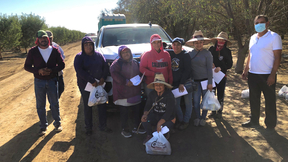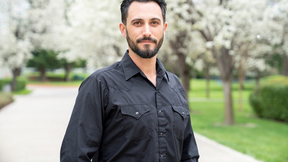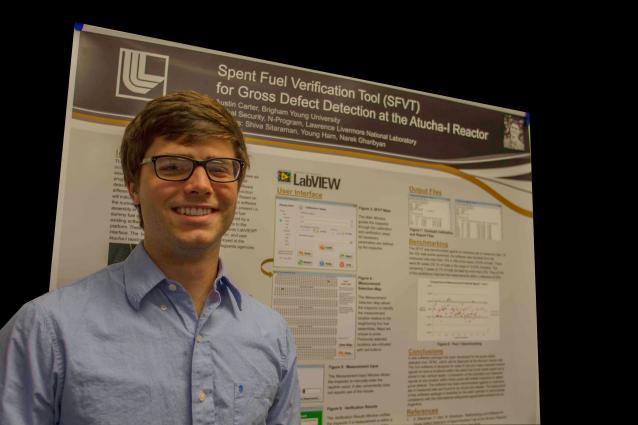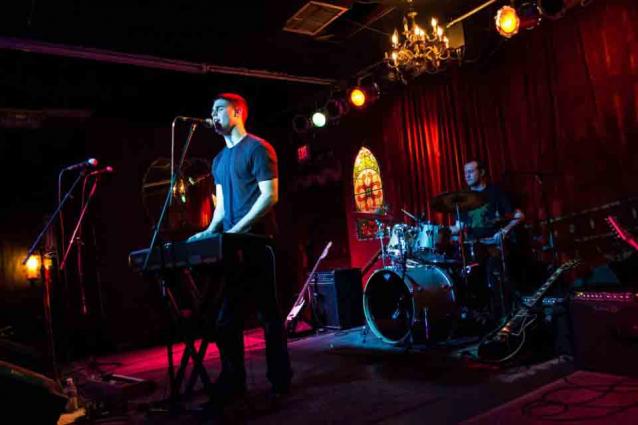Meet Austin Carter: future nuclear engineer
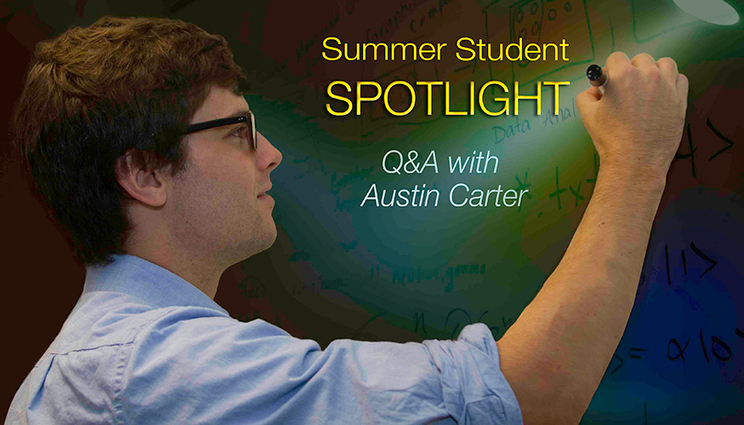 (Download Image)
Austin Carter is currently pursuing a bachelor’s degree in chemical engineering at Brigham Young University in Provo, Utah. After graduation in 2016, he is hoping to attend the University of Michigan for graduate studies in nuclear engineering. His goal is to work as a nuclear engineer/programmer for a small nuclear energy development company. Photo by Julie Russell/LLNL
(Download Image)
Austin Carter is currently pursuing a bachelor’s degree in chemical engineering at Brigham Young University in Provo, Utah. After graduation in 2016, he is hoping to attend the University of Michigan for graduate studies in nuclear engineering. His goal is to work as a nuclear engineer/programmer for a small nuclear energy development company. Photo by Julie Russell/LLNL
Editor's Note: This is one in a series of articles highlighting the diverse group of Lawrence Livermore National Laboratory summer students.
______________
The Lawrence Livermore National Laboratory (LLNL) student internship program is designed to allow students to engage in work-study employment opportunities in relevant science, technology, engineering, mathematics (STEM) and administrative fields during the summer academic break. This year, LLNL is proud to welcome more than 600 students from universities nationwide and around the world.
Introducing: Austin Carter
Full name: Austin Carter
Hometown: Melbourne, Florida
University attending/educational background: Brigham Young University, Provo, Utah
Major: Chemical Engineering
Graduation year: 2016
LLNL Directorate you are working in: Global Security
What interested you in pursuing a summer internship at the Laboratory?
I was mostly interested in the National Ignition Facility (NIF). I had heard about the NIF program in a chemistry class and found it very interesting. When I saw a recruiter at a STEM career fair at Brigham Young University (BYU), I talked to the recruiter for about 20 minutes about all the interesting science and technology at NIF and the other programs.
What are you working on at the Laboratory?
My project is creating a software program that detects gross defects in a pool of spent nuclear fuel rods located in Argentina. It notifies government inspectors if a neutron count rate is near a predicted value.
What do you enjoy most about interning at the Laboratory?
I mostly enjoy the independence that I have experienced working at LLNL. It is so nice to come to work, know what I want to implement in my program, figure out how to do that, and then collaborate with my mentor and team to find other necessary improvements. I feel very much in charge of a significant effort, which is so unique for an undergraduate student. I have already learned so much about nuclear engineering and nuclear safeguards by working here.
What have you learned (or are learning) that has made a difference to you?
I have learned to be resourceful. If I have a question, or lack a technical ability on the software platform, I feel very comfortable approaching my mentor or other developers to get the information I need. This helps move the project along very quickly.
Where do you see yourself after graduation? What is your dream job?
After my undergraduate studies, I hope to attend a quality graduate program studying nuclear engineering. I am hoping to attend the University of Michigan, Wisconsin or Washington. My dream job is to be a nuclear engineer/programmer for a small nuclear energy development company such as Helion Energy, Tri-Alpha Energy, TerraPower, Lockheed Martin’s nuclear program or perhaps start my own.
Who/what has inspired you to pursue an education and career in a STEM field?
I was always a "top dog" in math growing up. Algebra, geometry, calculus, etc. were by far my best and favorite subjects. It wasn’t until I was about 16 or 17 that I realized how interesting science is and how much it relates to math. I became very interested in theoretical physics on my own mainly by reading books, such as "The Elegant Universe," and reading articles on the internet. I remember very well when I was 13 and we learned about nuclear energy in school, I thought to myself, "Why isn’t this, the exclusive source of power? It’s incredible!"
What has been your biggest challenge to overcome?
My biggest challenge is being consistent. It’s easy to get very excited when something is new and you love it. However even the most exciting things can become mundane and it’s often easy to lose interest. I have found that successful people simply develop and maintain good habits of hard work. This applies when coding, studying, learning an instrument, working out and most everything in life.
What do you consider to be your biggest accomplishment so far?
My biggest accomplishment so far has been my pace of work. I anticipated my project to take the entirety of the summer, however, by working hard I was able to wrap it up midway through the summer, giving me the opportunity to jump into another project and apply the skills I’ve learned even further.
As a college student, what is the most important lesson you have learned?
As I mentioned earlier, I would say the most important lesson I’ve learned is consistency. Even when I’m tired, distracted, bored of programming, or numerous other "excuses," in the end I will either pay a small price to be disciplined and work hard, or pay the huge price of regret for not becoming who I want to be.
What advice would you give a high school student?
I would suggest a high school student make small sacrifices to open up a world of opportunity. For example, buy a relatively inexpensive SAT/ACT book or course and study to improve your scores to get acceptance letters and scholarships. I was set on science/engineering coming out of high school, but I know there are many kids who are lost. To them I would suggest they explore different ideas and find out what resonates. Read some good books, see new places and talk to interesting people.
What do you like to do in your spare time? What are your hobbies?
I love music. I play piano, saxophone, guitar, and sing. I also love soccer, basketball, NCAA football, running, swimming and biking.
What is next for you/what are you looking forward to?
After having learned a ton here at the Laboratory, I am looking forward to returning to BYU for my senior year, doing a lot of research and getting ready for grad school.
_________________
To learn more about summer internships and the Laboratory’s scholar programs, visit the scholars@llnl website.
Follow inside LLNL on Twitter for an inside look at the people and events at LLNL.
Contact
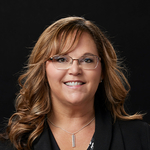 Carrie L Martin
Carrie L Martin
[email protected]
(925) 424-4715
Related Links
Brigham Young UniversityLLNL student internship programs
Inside LLNL on Twitter
Tags
Academic EngagementSTEM
Summer Student Spotlight
Careers
Community Outreach
Featured Articles

